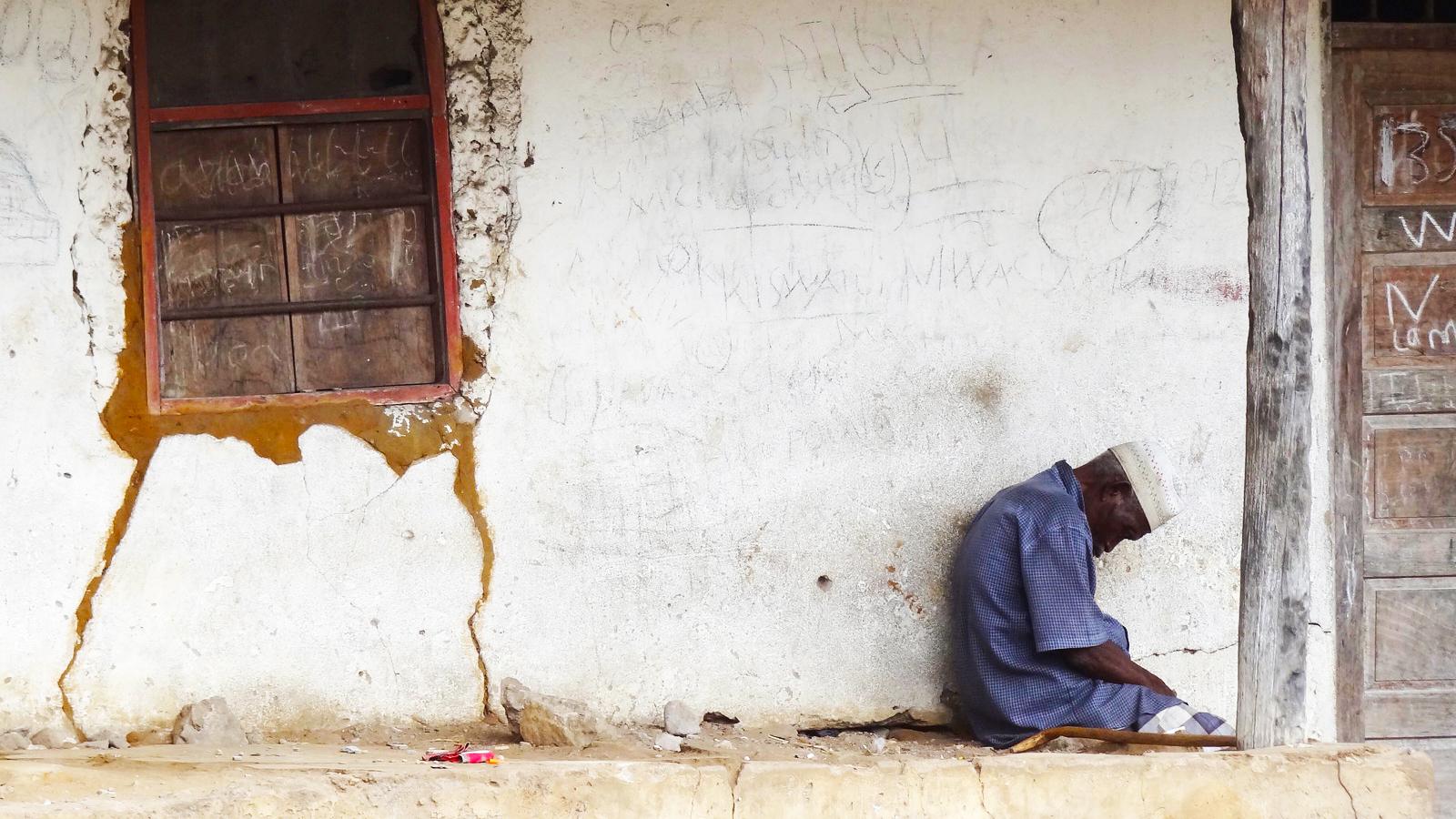Representations of male African youth continue to speak to the idea of a dangerous hyper-masculinity, which fills debates and images about Africa’s role in the immediate and more distant future. Drawing on empirical research in Burkina Faso, Jesper Bjarnesen illustrates how such popular stereotypes are appropriated and performed by young men in ways that are strategic and inventive.
This post is part of a series exploring the effects, presentation and evolution of masculinity in contemporary African society.
In late 2018, the political writer Robert Kaplan celebrated the 25th anniversary of his highly influential article, ‘The coming anarchy’, which allegedly informed American foreign policy on Africa through the mid-1990s. Kaplan’s musings (analysis might be too strong a word) were primarily based on his impressions from travels in West Africa in the years leading up to its publication in February 1994, which he (in)famously summarised as follows:
‘Each time I went to the Abidjan bus terminal, groups of young men with restless, scanning eyes surrounded my taxi, putting their hands all over the windows, demanding “tips” for carrying my luggage even though I had only a rucksack. In cities in six West African countries I saw similar young men everywhere – hordes of them. They were like loose molecules in a very unstable social fluid, a fluid that was clearly on the verge of igniting’.
In his 2018 celebration of this influential article, ‘The anarchy that came’, Kaplan restates his grim underlying vision, that ‘… [a]n increasingly interconnected world, beset by vast technological change and absolute rises in population in the poorest countries, simply cannot be at peace’. As it was 25 years ago, the threat of ‘an ever-growing number of young males in the most economically and politically fragile societies’ plays a central role in painting the picture of the (West) African young man as the emblematic threat to (global) peace and prosperity. This vision warrants commentary.
As an anthropologist working on conflict-related mobilities in West Africa, I join a long line of researchers who have taken issue with Kaplan’s dystopian view of the sub-region. While such criticism has been widespread within academia and elsewhere, representations of male African youth continue to speak to the idea of a dangerous hyper-masculinity.
Burkina Faso, where I have conducted most of my empirical research, has one of the youngest populations in the world, with a median age of 17.4 years. As one of the poorest countries in the world, Burkina Faso is struggling with youth unemployment and will continue to do so as Africa’s overall population is projected to double over the course of the next thirty years. Such a context would seem ripe for Kaplan’s dystopian vision of restless young men preying on travellers at bus stations, in a ‘societal fluid’ ready to erupt into violence and anarchy. Indeed, Burkina Faso went through a popular uprising in 2014, which ousted President Blaise Compaoré after 27 years in power. Lives were lost, and an attempted coup was averted, but the uprising did not lead to widespread violence or societal breakdown, and over the past five years these democratic gains have been consolidated. The 2014 popular uprising was to a significant extent driven by young political activists and associations, posing legitimate demands on the political system and its elected officials. There was nothing anarchic about it.
Long before the 2014 popular uprising in Burkina Faso, I followed a group of young men who had escaped the armed conflict in neighbouring Côte d’Ivoire in the early 2000s and resettled in Bobo-Dioulasso, Burkina Faso’s second-largest city. In their search for livelihood options, they had realised that their upbringing in Côte d’Ivoire – a popular destination for Burkinabe labour migrants – offered them advantages over local youths, particularly their language skills and more self-asserting demeanour. They eventually made links with local politicians looking for youths to populate their rallies and sing their praises, as well as to run errands and escort them on campaign travels. In a recent anthology on youth political participation in Africa, I used this case study to argue that my interlocutors had found a way to perform youth in a way that resonated with both local and global ideas about young people as energetic, engaged and, well, youthful. By embracing popular perceptions of them, these young men deliberately marketed themselves on an informal labour market which eventually provided for some more steady employment opportunities, much as one would frame and exaggerate one’s CV at a formal job interview.
In a recent book project, Violence in African Elections, my co-editor and I collected case studies from across the continent, looking into the dynamics of patronage politics and electoral violence. As is already established in the literature, these cases made clear that electoral violence is generally exerted by the state, not by angry young men, as it were. What also came across was the ways in which young men were linking up with the political elite in various ways; sometimes to take on the role of ‘muscle’, providing security but also participating in voter intimidation and aggression towards competing candidates. In such collaborations, the powerful clearly harnessed localised perceptions of young men as potentially violent, but even in these cases, I would argue, these perceptions were deliberately performed and manipulated for personal and political gains. Again, there was nothing anarchic about it. Quite the contrary, the political elite as well as the young men themselves were making the most of a common stereotype in calculated and perceptive ways.
Not only is the perception of (African) masculinity as inherently anarchic, or uncontrollable, clearly wrong, it reproduces some of the most persistent racist stereotypes about the continent. The same goes for the idea that (African) masculinity is inherently violent. In a recent contribution to a collection on Perpetrators, I argued that young Burkinabe men’s participation in the armed conflict in Côte d’Ivoire was not about a desire to fight, or a mindless adventure. The combatants I have spoken to saw their participation in armed combat primarily as a livelihood strategy that mirrored the labour migration trajectories of generations of workers since the colonial period.
Common for the civilian and militarised settings that I have studied, then, are young men’s efforts to create connections to those in power – be they local politicians or rebel commanders. In both spheres, stereotypes about masculinity are embraced and manipulated to gain an advantage, but only the casual observer would mistake these performances for evidence of a lesser humanity or a generalised menace to society; ‘loose molecules’ in the pseudo-scientific language of Robert Kaplan.
It may seem anachronistic to take another swing at an easy target, but this line of criticism is important to restate and reemphasise, not only in reaction to Kaplan’s recent self-celebration but more significantly to challenge the underlying imagery of discourses relating to fears of migration towards the global North; democratisation in African countries; fears of overpopulation; and assessments of armed conflicts – all of which tend to feature a Kaplanesque vision of African young men as ‘hordes’. If we are to mark the 25th anniversary of ‘The coming anarchy’, it should be by reminding ourselves that the dehumanising view of African masculinity at its core is alive and well, and continues to perpetuate fear and misinformation.
Photo: Man on a cart in Bobo-Dioulasso, Houet, Burkina Faso. Credit: Eric Montfort, Flickr (CC BY-NC-ND 2.0)





